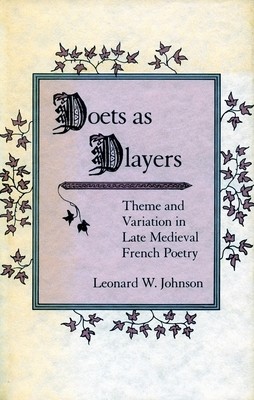
- We will send in 10–14 business days.
- Author: Leonard W Johnson
- Publisher: Stanford University Press
- ISBN-10: 0804718288
- ISBN-13: 9780804718288
- Format: 16.3 x 23.4 x 2.8 cm, hardcover
- Language: English
- SAVE -10% with code: EXTRA
Reviews
Description
In close readings of a wide range of texts significant during their own time but little studied today, the author presents a new view of late medieval French poetry in all its subtle variety: its quirkiness, its sumptuous and acrobatic rhyming, its frequent moral seriousness, its occasional bawdiness, and the ambiguities of its authorial 'I'. The book is centered on the rich metaphor of poetry as play - a joyous activity, a game in which both the poet and the public may be players. The number of word games is legion, and the late medieval poets play different kinds involving puns, rhymes, riddles, sexual jokes, irony, and ambiguity. Sometimes the game is blindman's buff, where the poet's identity is hidden, changed, multiplied. Some poems are farces or high comedy; others are morality plays, in which the poet casts himself as a player. Identifying the role played by the poet, the place of his or her 'I' in its various embodiments, is a major concern in the reading of the texts. Guillaume de Machaut serves as the first player of the poetic game and, particularly in his ballades, as a kind of magister ludi, who is the source of the rules.
EXTRA 10 % discount with code: EXTRA
The promotion ends in 17d.19:08:24
The discount code is valid when purchasing from 10 €. Discounts do not stack.
- Author: Leonard W Johnson
- Publisher: Stanford University Press
- ISBN-10: 0804718288
- ISBN-13: 9780804718288
- Format: 16.3 x 23.4 x 2.8 cm, hardcover
- Language: English English
In close readings of a wide range of texts significant during their own time but little studied today, the author presents a new view of late medieval French poetry in all its subtle variety: its quirkiness, its sumptuous and acrobatic rhyming, its frequent moral seriousness, its occasional bawdiness, and the ambiguities of its authorial 'I'. The book is centered on the rich metaphor of poetry as play - a joyous activity, a game in which both the poet and the public may be players. The number of word games is legion, and the late medieval poets play different kinds involving puns, rhymes, riddles, sexual jokes, irony, and ambiguity. Sometimes the game is blindman's buff, where the poet's identity is hidden, changed, multiplied. Some poems are farces or high comedy; others are morality plays, in which the poet casts himself as a player. Identifying the role played by the poet, the place of his or her 'I' in its various embodiments, is a major concern in the reading of the texts. Guillaume de Machaut serves as the first player of the poetic game and, particularly in his ballades, as a kind of magister ludi, who is the source of the rules.


Reviews